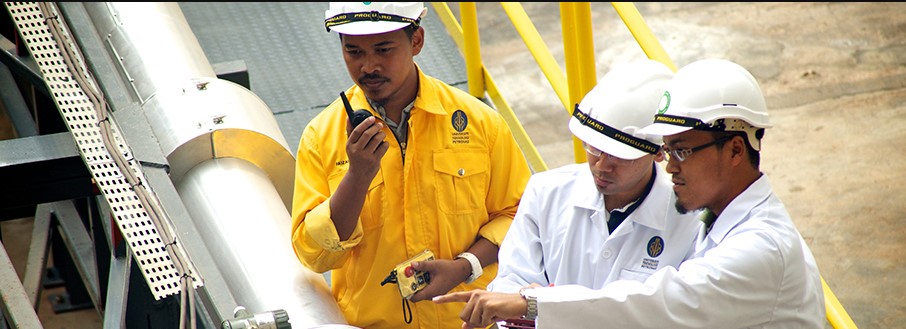Petroleum engineers don’t just drill for oil—they make high-stakes decisions under extreme pressure. Whether they’re troubleshooting a failing rig, analyzing seismic data, or responding to an oil spill, their choices can have huge financial and environmental consequences. But here’s the catch: even the most experienced engineers aren’t immune to cognitive biases.
So, what’s going on in their minds when they make tough calls? And how can understanding psychology improve decision-making in the oil and gas industry? Let’s dive into the fascinating world of cognitive biases in petroleum engineering.
High-Pressure Decisions: Why the Mind Plays Tricks
Imagine this: You’re an offshore petroleum engineer, and an alarm goes off. There’s a pressure spike in the well, and you have seconds to act. Shut it down, or keep drilling? Every choice carries risk. In moments like this, stress levels soar, and cognitive biases creep in.
Biases are mental shortcuts that help us process information quickly—but sometimes they lead us astray. Under high pressure, engineers may ignore red flags, overestimate their expertise, or stick to past solutions that no longer work. That’s when mistakes happen.
Common Cognitive Biases in Petroleum Engineering
Understanding biases is the first step toward mitigating them. Here are some of the most common ones affecting petroleum engineers:
1. Confirmation Bias: Seeing What You Expect to See
Ever ignored a problem because it didn’t fit your expectations? That’s confirmation bias at work. Engineers often interpret data in ways that support their pre-existing beliefs. If you’re convinced a reservoir will produce oil, you might overlook warning signs that say otherwise.
How to avoid it: Encourage team discussions where different viewpoints are welcomed. Challenge assumptions and rely on diverse data sources.

2. Overconfidence Bias: “I’ve Got This” Syndrome
Confidence is great—until it turns into arrogance. Some engineers, especially those with years of experience, may trust their instincts too much and ignore new data. This overconfidence can lead to poor risk assessment.
How to avoid it: Foster a culture where questioning and second opinions are the norm. Regular training and simulation exercises can help keep decision-making sharp.
3. Anchoring biases: Sticking to the First Piece of Information
Let’s say an engineer gets an initial pressure reading of 500 psi. Even if later readings show 800 psi, they may still base their decisions on that first number. That’s anchoring bias—it makes us rely too much on initial information.
How to avoid it: Always reassess data as new information comes in. Avoid jumping to conclusions based on first impressions. Also Read>>>>>>>>>>
4. Status Quo Bias: The Fear of Change
“If it worked before, it’ll work again.” This mindset can be dangerous in petroleum engineering, where conditions change constantly. Status quo bias makes people resistant to new technologies or updated safety procedures.
How to avoid it: Encourage innovation and reward employees for adapting to new methods. Test different approaches through pilot projects before full implementation.
5. Groupthink: When Everyone Agrees (for the Wrong Reasons)
In high-pressure environments, teams sometimes avoid conflict by agreeing with the majority—even when they have doubts. This is groupthink, and it can lead to disaster if bad decisions go unchallenged.
How to avoid it: Appoint a “devil’s advocate” in meetings to question group decisions. Create a safe space for dissenting opinions.
Real-World Lessons: When Biases Lead to Disaster
Biases aren’t just theoretical—they’ve played a role in major oil and gas disasters.
Deepwater Horizon (2010)
The infamous oil spill in the Gulf of Mexico was partly due to overconfidence and confirmation bias. Engineers ignored early warning signs of a blowout, assuming their existing safety measures were sufficient. The result? One of the worst environmental disasters in history.
Piper Alpha (1988)
This North Sea oil rig explosion happened because operators followed outdated procedures (status quo bias) and failed to recognize new risks. The catastrophe killed 167 workers and changed offshore safety regulations forever.
These cases show why psychology matters in petroleum engineering. When bias goes unchecked, lives and billions of dollars are at stake.
How Petroleum Engineers Can Make Smarter Decisions
Now that we know the risks, what can engineers do to reduce cognitive bias? Here are some actionable strategies:
1. Embrace Data-Driven Decision-Making
Numbers don’t lie—if you know how to read them correctly. Engineers should rely on hard data, not gut feelings, to make critical choices. Investing in advanced analytics and AI-driven tools can help minimize human bias.
2. Encourage Psychological Safety in Teams
When team members feel safe to voice concerns, biases are less likely to go unnoticed. Engineers should work in environments where questioning and debating decisions is encouraged, not punished.
3. Use Decision-Making Frameworks
Structured approaches, like the OODA Loop (Observe, Orient, Decide, Act), can help engineers slow down and consider all factors before making a call. Decision trees and checklists also help avoid rushed judgments.
4. Train for High-Pressure Scenarios
Simulation drills help engineers practice decision-making in stressful environments. The more they experience high-pressure situations in a controlled setting, the better they’ll handle real ones.
5. Bring in External Audits
An outside perspective can be invaluable. Regular audits from third-party experts can help identify blind spots and improve operational safety.
Final Thoughts: Why This Matter
Petroleum engineers work in some of the most challenging environments on Earth. With so much at stake, even small cognitive biases can lead to massive consequences. By understanding how these biases work and implementing strategies to counter them, engineers can make better, safer, and more informed decisions.
So, next time you’re faced with a critical choice, ask yourself—am I thinking clearly, or is my brain playing tricks on me?
Join the Conversation
What’s your experience with high-pressure decision-making? Have you seen cognitive biases at play in engineering? Share your thoughts in the comments below, and let’s discuss!



